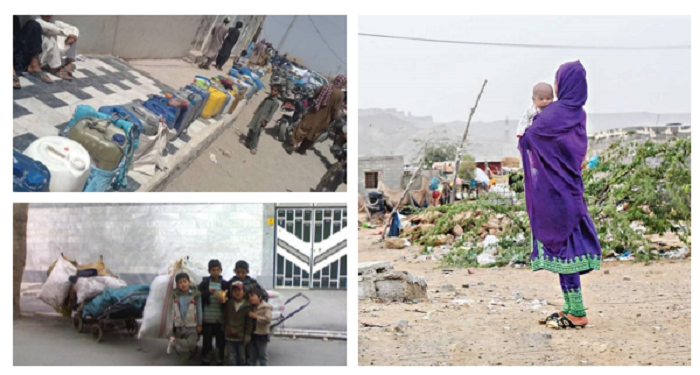
In a nation grappling with escalating challenges, Iran’s ongoing water scarcity and economic downturn have become burning issues, intensifying the hardship of its citizens.
The root cause, many believe, is the regime’s mismanagement and exploitation of the nation’s resources.
The situation is so dire that bread, a staple in the Iranian diet, is reportedly becoming unaffordable for many. Abdolnasser Derakhshan, a parliamentary representative for the Sistan and Baluchestan province, has raised alarming concerns.
He mentions the government’s inability to implement bread subsidies, particularly in rural sectors where a considerable number of Iranians reside. This challenge is exacerbated by issues such as a lack of proper documentation among residents, and the unorganized and burdensome taxation system weighing down the populace.
Water scarcity, an equally pressing issue, has been worsened by the regime’s negligence. Mohammad Mehdi Zahedi, representing the Kerman province, reveals a significant portion of his province is without access to clean drinking water. Given the escalating nature of this crisis, he urgently pleads with the regime to advance the water transfer project from the Persian Gulf.

Iranian citizens have long been victims of a deteriorating quality of life marked by unemployment, increasing poverty, and the struggle to meet basic needs.
Amid these challenges, several officials from within the regime have started voicing their apprehensions. Farhad Bashiri, another parliamentary member, called on the economic team of the regime’s president for urgent corrective action. He highlighted the devaluation of the national currency and its impact on the already struggling working class and impoverished citizens. Bashiri also emphasized the urgent need to support domestic farmers by purchasing their produce and settling pending dues.
Mansour Ali Zaree chimed in, addressing concerns related to the regime’s import policies. He stressed that the lowered taxes on imported goods have undercut domestic farmers, making competition nearly impossible.

This has further threatened Iran’s agricultural independence, leaving over 100,000 tons of rice from Mazandaran province unsold, despite parliamentary measures to reduce domestic rice prices.
These revelations, along with the open frustrations of the common folk be it on streets, protests, or social media paint a grim picture of the nation’s current state.
There is a growing realization among many that the regime’s mismanagement is leading the nation to a precipice, with uncertainties about the future becoming increasingly palpable. The calls for reform and action grow louder, but whether they will herald a change remains to be seen.
MEK Iran (follow us on Twitter and Facebook), Maryam Rajavi’s on her site, Twitter & Facebook, NCRI (Twitter & Facebook), and People’s Mojahedin Organization of Iran – MEK IRAN – YouTu

